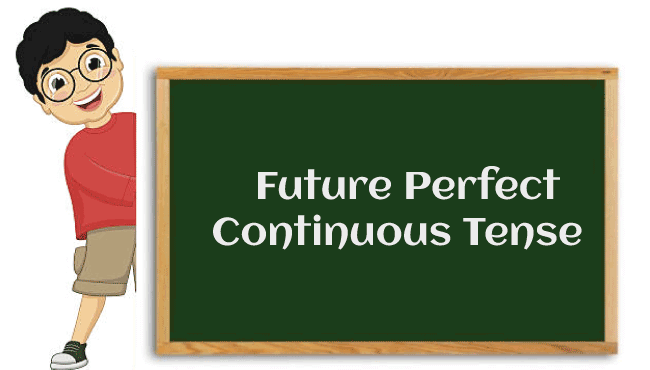Future Perfect Continuous Tense
Future perfect continuous tense describes an action that will continue over a period of time in the future. In this tense, after 'shall/will', 'have been' is used, followed by the fourth form (V4), the continuous form of the verb. The structure of the sentence is: Subject + shall/will + have been + V4 (ing form of verb) + other words Examples:
Future perfect continuous tense in all kinds of sentences1. Affirmative sentence: In the affirmative sentence of future perfect continuous tense, 'have been' is used, followed by the fourth form (V4) of the verb. The structure of the sentence is; Subject + shall/will + have been + V4 + other words Examples:
2. Negative sentence: In the negative sentence of future perfect continuous tense, 'not' is used before 'have been'. The structure of the sentence is: Subject + shall/will + not + have been + V4 + other words. Examples:
3. Interrogative sentence: In the interrogative sentence of future perfect continuous tense, 'shall/will' is used before the subject, and 'have been' is used after the subject. The structure of the sentence is: Shall/will + subject + have been + V4 + other words Examples:
4. Negative interrogative sentence: In the negative interrogative sentence of future perfect continuous tense, 'not' is used between the subjects and 'have been'. The structure of the sentence is: Shall/will + subject + not + have been + V4 + other words Examples:
Uses of future perfect continuous tense
Example: By next year, he will have been preparing for the IAS examination for two years. Raj will have been working in his new company for five years. Note: This tense expresses both the continuing and completing action in the future. It means the time duration will be complete, but the action will be continuing.Example: By 7 o'clock, the soldiers will have been doing their duty for 20 hours.
Next TopicFuture Perfect Tense
|
 For Videos Join Our Youtube Channel: Join Now
For Videos Join Our Youtube Channel: Join Now
Feedback
- Send your Feedback to [email protected]
Help Others, Please Share









